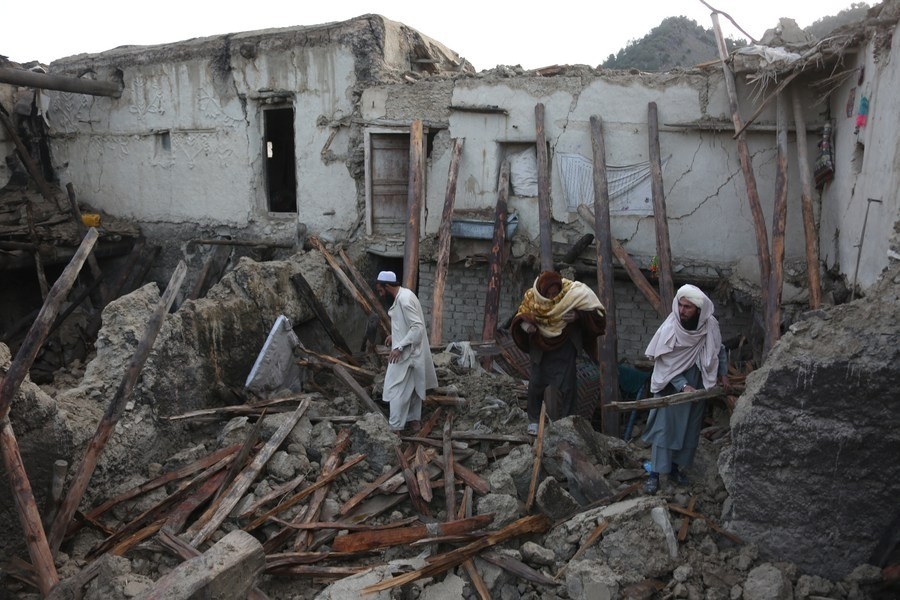IANS Photo

Kabul, November 13 (IANS): The United Nations Office for the Coordination of Humanitarian Affairs (OCHA) has called for urgent aid for earthquake victims in northern Afghanistan as hundreds of families remain homeless and vulnerable to freezing temperatures, local media reported on Thursday.
Hundreds of families have lost their homes in the earthquake of 6.3 magnitude that struck Balkh province, killing at least 27 people and injuring nearly 1000 others. Nearly 1,000 homes were destroyed due to the earthquake, leaving many families homeless and exposed to freezing temperatures, Afghanistan's leading news agency Khaama Press reported.
OCHA stated that earthquake victims urgently require support to reconstruct their homes and secure shelter to survive the freezing temperatures in the coming months.
Impacted families in Balkh and Samangan provinces have demanded reconstruction of their homes to ensure their safety and basic living conditions as the winter is approaching.
Humanitarian groups have been providing food, blankets and shelter materials to affected families. Officials warned that delays in providing aid to impacted families could further intensify the crisis and increase suffering.
Aid agencies have been making efforts to reach people living in remote areas. However, challenging terrain and winter weather may slow down their relief work.
Authorities stressed the importance of international support to stop further loss of life and ensure safety of vulnerable families in the upcoming winter season.
Meanwhile, the United Nations warned that 90 per cent of families in Afghanistan face severe food shortages.
The United Nations Development Programme (UNDP) said nine out of 10 Afghanistan families have been forced to reduce food consumption or sell assets to survive, a situation exacerbated by Afghan refugees returning from Iran and Pakistan, Khaama Press reported.
UNDP Regional Director for Asia and the Pacific Kanni Wignaraja warned that restrictions on women working in humanitarian and reconstruction projects have reduced access to essential services.
The report released on November 13 is based on a survey conducted of nearly 49,000 Afghan families, which includes over 1,500 refugee families. The return of approximately 2.3 million is further putting severe strain on recovery efforts in Afghanistan.






